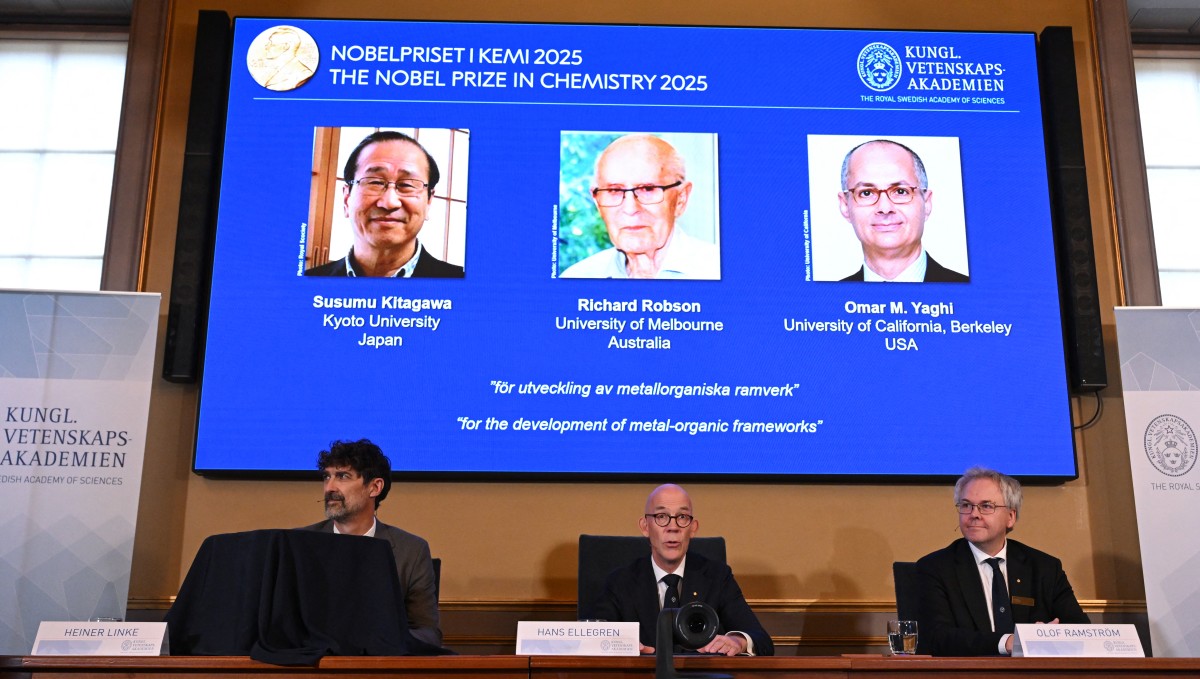
STOCKHOLM - Scientists Susumu Kitagawa, Richard Robson and Omar Yaghi won the 2025 Nobel Prize in Chemistry "for the development of metal–organic frameworks", the award-giving body said on Wednesday.
The more-than-a-century-old prize is awarded by the Royal Swedish Academy of Sciences and the winners share 11 million Swedish crowns ($1.2 million), as well as the fame of winning arguably the world's most prestigious science award.
"Through the development of metal-organic frameworks, the laureates have provided chemists with new opportunities for solving some of the challenges we face," the award-giving body said in a statement.
It was the third prize announced in this year's crop of awards, in keeping with tradition, following those for medicine and physics announced earlier this week.
Established in the will of Swedish inventor and businessman Alfred Nobel, the prizes for achievements in science, literature and peace have been awarded since 1901, with a few interruptions mostly due to the world wars.
Nobel was himself a chemist and his developments in that field helped underpin the wealth he amassed from his invention of dynamite in the 19th century. The economics prize is a later addition funded by the Swedish central bank.
Sometimes overshadowed by more famous laureates in the fields of physics, literature and peace, the chemistry awards have still recognized many influential discoveries such as nuclear fission, DNA sequencing techniques, and yeast. Last year's chemistry award went to US scientists David Baker and John Jumper and Briton Demis Hassabis for work on decoding the structure of proteins and creating new ones, yielding advances in areas such as drug development.


